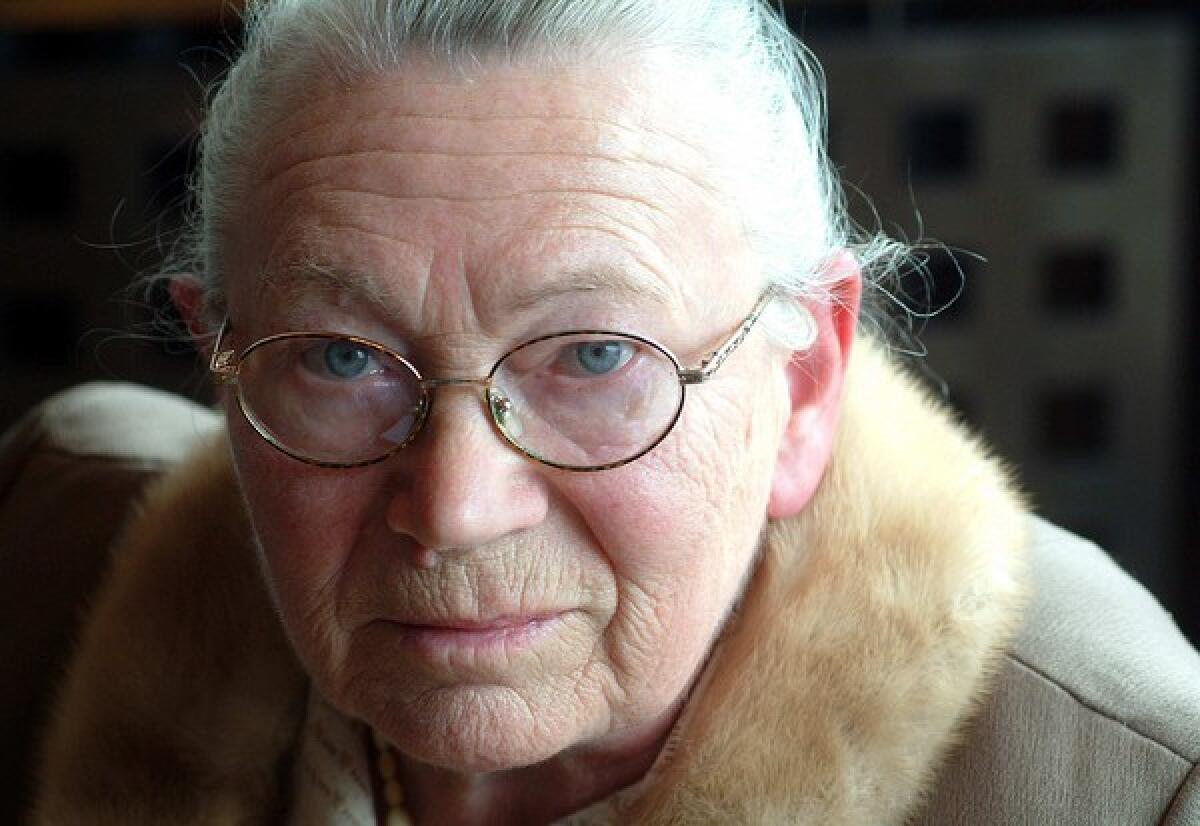Anna Walentynowicz dies at 80; Polish union activist helped lead Solidarity movement

- Share via
Anna Walentynowicz, a Polish union activist whose 1980 dismissal from a Gdansk shipyard touched off strikes that led to the founding of the Solidarity movement and the eventual toppling of Polish communism, died in the plane crash Saturday that devastated the country’s elite. She was 80.
Walentynowicz was a dissident who worked with Solidarity founder Lech Walesa in the early 1980s to agitate against communist rule. She was close to President Lech Kaczynski, also killed in the Saturday crash. Many others aboard the plane shared their ideology.
Walentynowicz was the most famous Solidarity activist aboard the plane, an iconic figure more closely associated with the 1980 strikes than anyone save Walesa.
She had sometimes been referred to as the Rosa Parks of Poland -- a nod to the African American woman who refused to surrender her seat on a segregated bus, a pivotal moment in the U.S. civil rights movement.
A 51-year-old crane operator in 1980, Walentynowicz was five months away from retirement when her bosses fired her for producing and distributing a newspaper critical of the regime. She had handed some copies directly to her bosses.
Her fellow workers were outraged and agitated to have her reinstated. That led to strikes and sit-ins at the Gdansk shipyard and in factories across the country.
Walesa, who had also been fired for his opposition activism, jumped the walls of the shipyard and returned to lead the massive strikes, which were also fed by anger over hikes in food prices.
“I was the drop that caused the cup of bitterness to overflow,” she once said, according to the weekly magazine Przekroj.
The protest, which lasted 18 days, resulted in a historic agreement with the communist authorities that gave birth to Eastern Europe’s first independent workers’ movement. Both Walesa and Walentynowicz were allowed to return to work.
Walentynowicz was the godmother of one of Walesa’s eight children, but she eventually turned against him for personal and ideological reasons. She felt that he took too much credit for himself in the struggle and that he made too many compromises with the communists.
Walentynowicz was born Aug. 13, 1929, and was 10 years old when Nazi Germany and the Soviet Union invaded and occupied Poland. Her father was killed in the war, and she fell victim to a Nazi decree that prevented Poles from continuing their education after the fourth grade -- part of an effort by the Nazis to enslave Poles.
When Walentynowicz began her activism at the shipyard she was already widowed and had survived a near-fatal bout of cancer. Her unlikely survival of the illness left her with a sense that she was meant to carry out something worthwhile.
More to Read
Sign up for Essential California
The most important California stories and recommendations in your inbox every morning.
You may occasionally receive promotional content from the Los Angeles Times.












